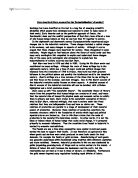Further incompetence of leaders that can be seen in political blunders committed by democratic-elected leaders, which dampened the support for democracy in some Southeast Asian states. In 1954, U Nu proposed a constitutional amendment making Buddhism the state religion of Burma, a move that offended the country's Christian and Muslim minorities. To placate them, he offered equal time for the teaching of all three religions in schools. That caused so much trouble from the monks that he banned all religion instruction, a move that again, caused much dissatisfaction from all over the country. He was forced to capitulate and allow only Buddhist instruction. In the end, the military had to step in to take over the battered civilian government in 1962, showing how democratic leaders are not effective in dealing with the people's demands. Sukarno's playboy lifestyle gave him a collection of diseases, causing him to age rapidly. In 1965, Sukarno faltered in the middle of a speech and had to be helped from the platform before the eyes of shocked thousands. The display of weakness by the Sukarno gave rise to the rebellion of many, and the military had to intervene several times. Gradually, people no longer support democracy as much as respect for the military leaders who were quick to put down any dissent.
Furthermore the governments that faced unfavourable circumstances such as challenges to central authority including ideological differences, communist and ethnic insurgencies were generally unsuccessful in implementing democracy in their countries. The limited amount of unity that was shown while the Indonesians were fighting the Dutch disappeared after the war was replaced by petty bickering between political factions. Some were divided along the religious lines between those who wanted an Islamic state and secular state. Between 1949 and March 1957 there were seven governments each trying to maintain internal security and develop the economy; this eventually paved the way for Suharto, a military general to stage a coup to take over from Sukarno and implement an authoritarian regime. In Burma, opponents of the U Nu regime rose up everywhere starting with two communist factions. The PVO (People’s Volunteer Organization) a militia of WWII veterans turned against the government and allied itself with the communists who promised a utopia that was more to their liking. The Karens formed the Karen National Defense Organisation (KNDO) and set out to create an independent Karen state. Another minority, the Mons also revolted. This ultimately brought an immense amount of challenges to the democratic governments who lacked the experience to deal with such situations thus leading to the failure of the democratic governments.
Pre-colonial political system that favoured collective institutions like families and clans also made it difficult for democracy to thrive in Southeast Asia. Between the achievement of independence in 1946 and the Marcos coup in 1972, the Philippines was a constitutional democracy with all the trappings of an American style political system. In practice, it was a system of intra-elite struggle, based on powerful patron-client relations at the apex of which were the landed families. In the late 1960s, a prominent Philippines businessman summed up the failure of the Philippines political system with the statement “we have no institutional loyalty, only personal loyalty”. The political process in the 20th century Philippines has been based on extensive patron-client relations, linking at the base of the society exploited peasants and powerful landlords.
The imposition of military regime justified in the name if national interest thrived in many Southeast Asian states, thereby weakening the capitalist ideology of democracy. Historian Nicholas Tarling saw the military as evolving from “armed constabularies” in the colonial era to “nation builders” in the post-colonial era…military represented a “new professionalism” in the military field. By the 1980s, militarized political parties controlled the governments of Burma and Vietnam, while politicized armies held power in Thailand and Indonesia. With the end of the cold war in the early 1990s, the military seemed to play a more subdued role in most of the southeast asian countries. This was because in these countries the military played a key role in the struggle for independence from the colonial masters. Hence, the military was very much trusted by the people and they were held in high esteem. When the liberal democratic governments failed to provide political stability and economic growth, the military, which have been lurking in the background for some time after independence, pounced to the front to assume political control.
However, not all states rejected democracy as noted in Malaya and Singapore, where ethnic issues and communist threats were dealt with before given independence, which thrived under democracy. When Malaya was given independence in 1957, the country was almost free from communist influence except some communist guerrilla fighters in the Thai-Malaya border. When emergency was over in 1960, the country was firmly in the hands of the alliance party, a coalition government dominated by the united Malay national organization (UMNO), Malayan Chinese party (MCP) and the Malaya Indian congress (MIC). Similarly in Singapore, the communist influence was reduced to the minimum after operation Coldstore in 1963 before Singapore merged with Malaysia. The 1964 racial riots were also effectively dealt with before Singapore gained independence from Malaysia in 1965.
In countries where the communist threat and ethnic insurgencies were prevalent, democracy would usually not survive for long after independence as the governments were usually fighting hard against these forces besides pushing back the military, which harboured the ambition of taking over the civilian governments. On the other hand, democracy usually work best in countries like Singapore and Malaysia, where these divisive issues were settled by the colonial master before they were given independence.







